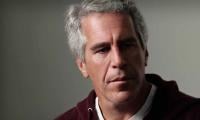Facing the heat
"Cities die where thieves thrive". Words of wisdom surged with the rise in mercury and in the number of souls lost so senselessly and so helplessly in the orphan plundered ruins of Karachi. But words seldom matter in our environment. In this Islamic republic thieves are a sacred community, the
By Syed Moazzam Hai
June 30, 2015
"Cities die where thieves thrive". Words of wisdom surged with the rise in mercury and in the number of souls lost so senselessly and so helplessly in the orphan plundered ruins of Karachi. But words seldom matter in our environment.
In this Islamic republic thieves are a sacred community, the displeasing or disturbing of which amounts to affronting and endangering the demonocracy that’s effectively sucked trillions out of this nation’s emaciated veins and brought it down to the levels of corruption and ill governance that were once distinguished with some of the countries of Africa only.
The greater the thief the grander the protocol and protection by this state, the same state under which its common children who keep her alive by their blood and sweat died sans electricity, water, heat relief centres, decent government hospitals, proper medication, human care and an iota of respect under a hellish sun treating them with heat that felt like burning at 50 degrees Celsius.
But even death couldn’t bring the ‘commoners’ of this land any signs or semblance of dignity as their corpses withered outside overflowing graveyards cut to size by China-cutting. Though graveyards – like water and respectable medical facilities – maybe gone far out of the reach of common citizens, the good thing is that democracy amidst all of this is alive and kicking, we should be thankful to our democrats.
Lamentations won’t help us. So since nothing can be done against thieves in this land of deals, NROs and reconciliation we can only try to face the heat, the kind that most probably would keep striking us hard – particularly the hardest in Karachi more often than ever now.
Rising temperatures and abnormal weather phenomena are a global reality and there’s no escaping from that. However, certain measures in our case may help us resist the warming climate.
Loadshedding stretching 10 to 12 hours in this scalding heat is lethal to human existence especially in the month of Ramazan. Back in June 2013 I had presented the idea of solar energy household farming in this newspaper. It was a plan to make possible the availability of solar-powered home solutions to create and maintain a certain level of relief for the people during the long, relentless hours of power cuts.
Not surprisingly our rulers did not take notice of that idea. As per the desi governance traditions sycophancy is what all our rulers pay heed to. Besides what’s the value of an idea that does not entail a mega project of mega money?
Money matters – and in Pakistan it’s the only thing that matters almost always.
But that does not take away the essentiality of the idea to provide household solar power arrangement to the relief of powerless people. Banks, in collaboration with solar companies, should launch easy micro credit schemes to facilitate people in buying solar systems and appliances. A few banks started doing that but on a subdued level. There’s need for aggressively and widely marketed campaigns offering household solar power solutions. Solar companies, in collaboration with retailers, should also run mass marketing campaigns rather than remaining shy and silent entrants.
Our mosques are usually run by public donations. Charity organisations and philanthropists’ groups should form joint groups and run campaigns of ‘a water cooler a mosque’. The idea would be to install an electric water cooler at every mosque or every other mosque which would be placed with its dispensing side approachable from outside of the mosque with faucets designed to release limited water at a time in order to discourage misuse and wastage by people.
Since state’s money is unsafe in Karachi, state institutions like the Pakistan Army and Rangers should be provided funds by the federal government to distribute hands-free hydration backpacks in low income localities in Karachi and other cities of Sindh. These institutions should also be provided funds to procure and run mobile heat relief units in summers. The government should also provide subsidy on ORS cachets during the months of May, June and July.
The media could also take out time from its uninterrupted coverage and idolisation of the mighty corrupt in this country and run a joint campaign for educating people on how to avoid heat strokes and what to do in case they do fall victim to one.
Much like its peace, land, water, development funds and local representation Karachi has also lost much of its tree cover during the never-ending reign of crimes and corruption. Ideally new green belts and parks should be developed in Karachi with indigenous trees like Banyan, Ficus, Gulmohar, Neem and Tamarind. However, corruption, greed and the advertising mafia have swallowed much of city’s parks, green belts and have devastated thousands of trees; and there can be no hope for such development.
The people of Karachi would have to plant trees themselves and the indigenous trees they plant should also include fruits like guava, mango, sapodilla (chikoo), and lemon trees for the benefit of both the humans and birds of Karachi. The people of Karachi will have to care for themselves and the city that’s been turned into a veritable hell zone. “Cities doom where thieves bloom”.
Email: moazzamhai@yahoo.com
In this Islamic republic thieves are a sacred community, the displeasing or disturbing of which amounts to affronting and endangering the demonocracy that’s effectively sucked trillions out of this nation’s emaciated veins and brought it down to the levels of corruption and ill governance that were once distinguished with some of the countries of Africa only.
The greater the thief the grander the protocol and protection by this state, the same state under which its common children who keep her alive by their blood and sweat died sans electricity, water, heat relief centres, decent government hospitals, proper medication, human care and an iota of respect under a hellish sun treating them with heat that felt like burning at 50 degrees Celsius.
But even death couldn’t bring the ‘commoners’ of this land any signs or semblance of dignity as their corpses withered outside overflowing graveyards cut to size by China-cutting. Though graveyards – like water and respectable medical facilities – maybe gone far out of the reach of common citizens, the good thing is that democracy amidst all of this is alive and kicking, we should be thankful to our democrats.
Lamentations won’t help us. So since nothing can be done against thieves in this land of deals, NROs and reconciliation we can only try to face the heat, the kind that most probably would keep striking us hard – particularly the hardest in Karachi more often than ever now.
Rising temperatures and abnormal weather phenomena are a global reality and there’s no escaping from that. However, certain measures in our case may help us resist the warming climate.
Loadshedding stretching 10 to 12 hours in this scalding heat is lethal to human existence especially in the month of Ramazan. Back in June 2013 I had presented the idea of solar energy household farming in this newspaper. It was a plan to make possible the availability of solar-powered home solutions to create and maintain a certain level of relief for the people during the long, relentless hours of power cuts.
Not surprisingly our rulers did not take notice of that idea. As per the desi governance traditions sycophancy is what all our rulers pay heed to. Besides what’s the value of an idea that does not entail a mega project of mega money?
Money matters – and in Pakistan it’s the only thing that matters almost always.
But that does not take away the essentiality of the idea to provide household solar power arrangement to the relief of powerless people. Banks, in collaboration with solar companies, should launch easy micro credit schemes to facilitate people in buying solar systems and appliances. A few banks started doing that but on a subdued level. There’s need for aggressively and widely marketed campaigns offering household solar power solutions. Solar companies, in collaboration with retailers, should also run mass marketing campaigns rather than remaining shy and silent entrants.
Our mosques are usually run by public donations. Charity organisations and philanthropists’ groups should form joint groups and run campaigns of ‘a water cooler a mosque’. The idea would be to install an electric water cooler at every mosque or every other mosque which would be placed with its dispensing side approachable from outside of the mosque with faucets designed to release limited water at a time in order to discourage misuse and wastage by people.
Since state’s money is unsafe in Karachi, state institutions like the Pakistan Army and Rangers should be provided funds by the federal government to distribute hands-free hydration backpacks in low income localities in Karachi and other cities of Sindh. These institutions should also be provided funds to procure and run mobile heat relief units in summers. The government should also provide subsidy on ORS cachets during the months of May, June and July.
The media could also take out time from its uninterrupted coverage and idolisation of the mighty corrupt in this country and run a joint campaign for educating people on how to avoid heat strokes and what to do in case they do fall victim to one.
Much like its peace, land, water, development funds and local representation Karachi has also lost much of its tree cover during the never-ending reign of crimes and corruption. Ideally new green belts and parks should be developed in Karachi with indigenous trees like Banyan, Ficus, Gulmohar, Neem and Tamarind. However, corruption, greed and the advertising mafia have swallowed much of city’s parks, green belts and have devastated thousands of trees; and there can be no hope for such development.
The people of Karachi would have to plant trees themselves and the indigenous trees they plant should also include fruits like guava, mango, sapodilla (chikoo), and lemon trees for the benefit of both the humans and birds of Karachi. The people of Karachi will have to care for themselves and the city that’s been turned into a veritable hell zone. “Cities doom where thieves bloom”.
Email: moazzamhai@yahoo.com
-
 Charlize Theron Delivers Strong Message At 2026 Winter Olympics Opening Ceremony
Charlize Theron Delivers Strong Message At 2026 Winter Olympics Opening Ceremony -
 Lil Jon Reacts To Son Nathan Smith's Death: 'Devastated'
Lil Jon Reacts To Son Nathan Smith's Death: 'Devastated' -
 Bianca Censori Reveals Where She And Kanye West Stand On Having Children Together
Bianca Censori Reveals Where She And Kanye West Stand On Having Children Together -
 Taylor Swift Hypes Olympic Athletes In Surprise Video Message
Taylor Swift Hypes Olympic Athletes In Surprise Video Message -
 Timothy Busfield Charged With Four Counts Of Child Sexual Abuse
Timothy Busfield Charged With Four Counts Of Child Sexual Abuse -
 Kanye West First Contacted Bianca Censori While In Marriage To Kim Kardashian?
Kanye West First Contacted Bianca Censori While In Marriage To Kim Kardashian? -
 Travis Kelce Reveals What His Nieces Really Do When He, Taylor Swift Visit
Travis Kelce Reveals What His Nieces Really Do When He, Taylor Swift Visit -
 Lola Young Makes Career Announcement After Stepping Back From Touring
Lola Young Makes Career Announcement After Stepping Back From Touring -
 Priyanka Chopra Shares Heartfelt Message For Nick Jonas
Priyanka Chopra Shares Heartfelt Message For Nick Jonas -
 Spotify, Major Labels File $13b Lawsuit Over Alleged Music Scraping
Spotify, Major Labels File $13b Lawsuit Over Alleged Music Scraping -
 Travis Kelce Opens Up About Being Backup Plan For His Nieces
Travis Kelce Opens Up About Being Backup Plan For His Nieces -
 Winter Olympics 2026: Chinese Robot Dance Goes Viral In Milan
Winter Olympics 2026: Chinese Robot Dance Goes Viral In Milan -
 Jessica Biel Urged To Divorce Justin Timberlake?
Jessica Biel Urged To Divorce Justin Timberlake? -
 Rebecca Ferguson Gets Honest About Having First Kid With 22 Year Older Man
Rebecca Ferguson Gets Honest About Having First Kid With 22 Year Older Man -
 Epstein Ties: UK Police Search Properties In Probe Into Peter Mandelson
Epstein Ties: UK Police Search Properties In Probe Into Peter Mandelson -
 Andrew Mountbatten-Windsor’s Friendship With A Child Sex Offender Turns His Future Murkier
Andrew Mountbatten-Windsor’s Friendship With A Child Sex Offender Turns His Future Murkier



